How to Become a Better Math Problem Solver & Still Have Steady Nerves?
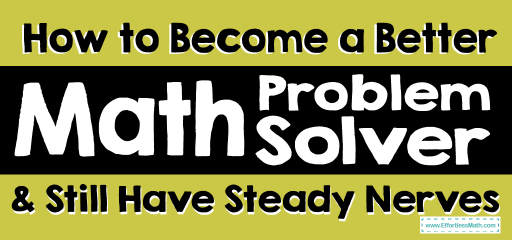
In this blog post, we’ve partnered with NextLead Ltd company to help you be a better math solver!
Math is one of the subjects that a lot of high school and college students have to deal with but tend to avoid. Some undergrads are passionate about the discipline but, let us face the truth – most schoolers hate it. Although the importance of the subject in our everyday life is undeniable, it’s not the field of study that makes us excited.

Math is one of the subjects that a lot of high school and college students have to deal with but tend to avoid. Some undergrads are passionate about the discipline but, let us face the truth – most schoolers hate it. Although the importance of the subject in our everyday life is undeniable, it’s not the field of study that makes us excited.
A lot of colleges provide academic programs that include some level of Mathematics while most tutors tend to use Math regularly in some form. The problem is that many undergrads have especially tough times when they face another task and don’t know how to handle one. At some point, you realize you’re not a professional Math problem solver, while the discipline is the subject that you can spend hours studying, but in the end, you find yourself stuck in the middle of nowhere with the same empty bag of knowledge. Unfortunately, if you fail to solve this or that Math problem on the day of the exam or test, there is a chance that you end up with the lowest scores. The thing is that when faced with a certain Math problem, in which the potential solution isn’t clear, a college undergrad needs to be an experienced problem solver to know what to do. When you deal with Math problems for the first time, it may seem like the science of problem-solving in the field of Math is out of your reach, but just like any other skills, you can boost your Math problem-solving abilities with ease. Fortunately, there are some tricks for studying Math and handling problems in the field that you can use regardless of your level of expertise or knowledge. Who knows maybe you may even end up being curious about this discipline by the end of the article?
The Absolute Best Book for the Algebra I
Practice, Practice, and Practice
This may seem like an obvious point, but it is impossible to study Mathematics by just listening to your tutor or reading some relevant materials. Listening and theory should go hand-in-hand with practice. In order to learn the subject, students have to get their hands on the studying process and actually work on some problems. The more you work with each, the better. As a rule, every Math problem has a range of its own characteristics and you should better solve it in several different ways before you start the exam. Unfortunately, you can’t avoid this step if you want to do well in your college Math class. So do your best to solve as many math problems as you possibly can.
Find the Clue Words
Imagine that there is a special case that you have to solve. It’s your opportunity to play detective if you want. When the next in turn Math problem pops up, you have to find the so-called keywords. You have to work on your key finding skills to be able to detect clue words effortlessly. Once you start solving Math problems by searching for keywords, you’ll realize that they usually point you to some operation.
As for the typical clue words for multiplication Math problems, the most popular ones are “total,” “product,” “times.” Division problems in the field of Math are commonly indicated by “average,” “distribute,” and “quotient.” The clue words like “in all,” “total,” and “sum” will show you that you’re dealing with additional problems. Without a doubt, the clue words may vary from task to task, but sooner than you think, you will be able to detect the keywords and identify the type of operations that they represent.
Read and Re-Read the Problem
You have to do it as many times as you can. Read it carefully and make sure to pin the clue words (we’ve discussed them in the previous segment). When you’re ready with the list of your clue words, make sure to underline or highlight each. Thus, you will be able to understand the type of Math problem that is on the plate. Now be sure to take the following steps:
- Ask yourself if you have ever dealt with a similar issue. If yes, what was similar about it?
- How did you solve that previous problem?
- Are you provided with any facts about the issue?
- Do you still need any information in order to find out more about today’s problem?
Check and Review Your Mistakes
When you’re working on your Math problem-solving skills, make sure you carefully investigate the process for every solution. In case you made some mistakes in your previous assignments, it is important to check and review each. This will help you get a better idea of where your Math skills failed you. Once you understand how exactly you tried to handle this or that Math problem and what it was that you did wrong, you will be able to boost your skills and keep away from making the same mistakes twice.
Understand the Key Concepts
Many students try to memorize all of the processes and keep them in mind until the end of their days. That’s wrong. Do yourself a real favor and try to concentrate on understanding all of the processes and logical chains that are involved in a particular problem. Eventually, this will help you to know more about how to approach and handle the same type of problems in every other Math assignment.
It is important to keep in mind that Mathematics is a sequential discipline, which means you have to have a solid understanding of the fundamental issues that are the building blocks for a Math topic before you switch to the other task. The latter might comprise more difficult solutions that require you to understand the basics.
Consider Your Doubts
More often than not, college and university students find themselves stuck trying to cope with a Math problem and proceed to the next level. A lot of undergrads tend to skip this part and simply move on to the next. Never do it this way! Instead, make sure to take your time and do your best in order to understand the peculiarities of the process of Math problem-solving. The very moment you understand what stands behind the initial problem, use your understanding as a stepping stone to the rest of the problem-solving routine.
Write Math Problem in Your Own Words
To help you get a better understanding of the nature of the Math problem, make sure to paraphrase it. For example, you can say it out loud and then put it down in your own words. Sometimes the problem may seem grandiose only because it is phrased unclearly or with the use of hard-to-understand terms. Check your task again and make it clear what it is that you’re required to do. Then rewrite it to make it sound simple and easy to understand.
Study with a Friend
It is a good idea to study with your friends or in a group. Solving Math problems with your friends (especially if some of them are good at this discipline) is a great chance to consult people who can help you and exchange some ideas when discussing complex problems.
Compared to solving Math problems on your own, group study offers a lot of advantages. If you and your college pals can work together and stay on task, pay no attention to distractions, and be serious through the process of work, you will be rewarded. There’s always someone to ask questions and get things clear about this or that Math concept. What is more, there is always someone to share your doubts with and have them dispelled.
Best Algebra Prep Resource
Have Your Own Math Dictionary
Just like any other niche of study, Math has its terminology. It means you can create a real dictionary, just like you do for your Spanish class. It is recommended to use flashcards or some note software to create a dictionary. Put down all of your definitions, terms, concepts, and the other items that you have to remember. Make sure that your notes include the key points and some short answers that you can use whenever you deal with the other Math problem.
Use Math
In any situation that you can think of, make sure to use the Math concepts that you learn. Believe it or not, but more real-world problems than you can imagine require using Math. For many college students, this subject can seem vaguer, which means deciding on a practical application can take time. However, make certain to change your perspective and adapt ideas in a different way.
For instance, you are welcome to use Math concepts in order to predict some horse races or try your luck and purchase a lottery ticket. The more you let Math be involved in your everyday life, the better.
Finally, make sure to reflect on every problem. When you have found the right solutions to your problem, it is recommended to take a look at your path. Take a moment to look back at how you moved from the first step to the last in order to be able to handle your Math problems successfully in the future as well. Next time, when you face the same problem, you will identify the key gaps faster and cope with the task with far less effort and losses.
The Best Books to Ace Algebra
Related to This Article
More math articles
- FREE 7th Grade New York State Testing Program Math Practice Test
- FREE HSPT Math Practice Test
- ISEE Upper-Level Math FREE Sample Practice Questions
- Complete Guide to Understanding Deductive Reasoning: Principles and Applications
- 5th Grade MCAS Math FREE Sample Practice Questions
- How to Interpret Remainders of Division Bigger Numbers Via One-digit Numbers
- How to Solve Two-variable Linear Equations Word Problems
- SHSAT Math Worksheets: FREE & Printable
- ASVAB Math: Complete Guide and Study Tips
- How to Determine Indeterminate Form and Vague Limits
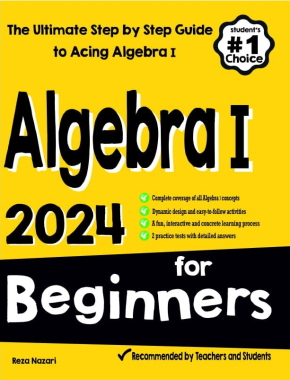

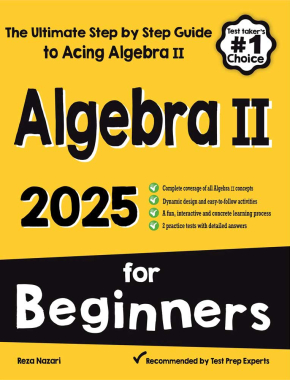
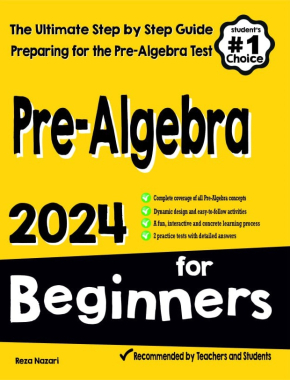
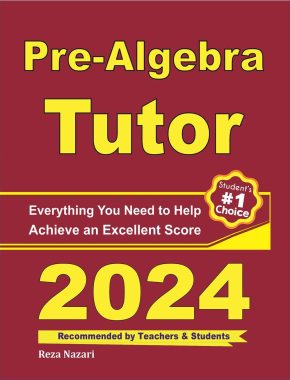
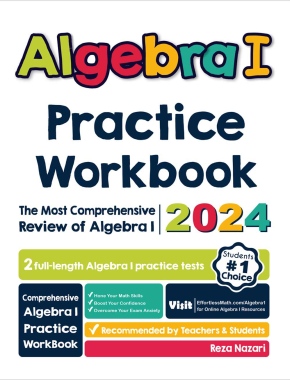
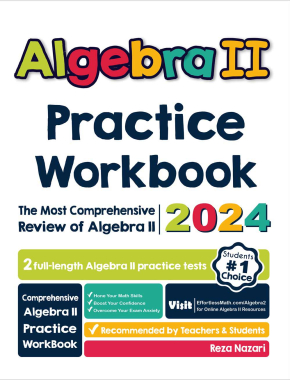
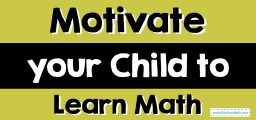









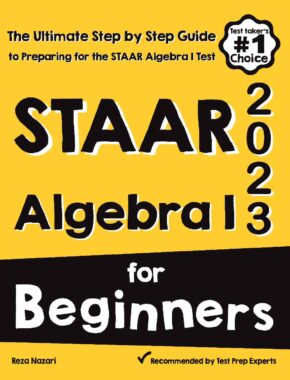
What people say about "How to Become a Better Math Problem Solver & Still Have Steady Nerves? - Effortless Math: We Help Students Learn to LOVE Mathematics"?
No one replied yet.